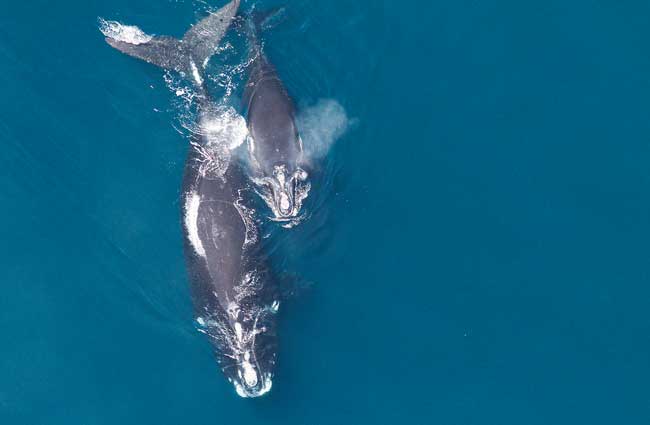By Laurie Schreiber
For lobster fishermen, today’s uncertainties revolve not only around a tightening market during the pandemic, but a legal situation that questions the industry’s ability to protect endangered North Atlantic right whales.
In mid-April, a federal judge ruled, in a case brought by four conservation organizations, that the federal government was not doing enough to protect right whales from being entangled in lobster gear. The case’s next phase will address whether new gear restrictions are needed.
Recently, the Maine Lobstermen’s Association launched a campaign to raise $500,000 for its legal team to participate in the second phase.
The industry is responding. Lobstermen Lee Watkinson, Dustin Delano, and Travis Doughty are donating a portion of their hauls to support the defense fund, according to an MLA Facebook post; Lee Marine, Midcoast Diesel Performance, and Brooks Trap Mill have also contributed.
“Hopefully it creates some buzz,” said Watkinson, who fishes out of Matinicus. “You feel hopeless when one federal judge can change things with a stroke of a pen.”
Watkinson said he feared a possible closure of the industry, which would be devastating not only to lobstermen but their communities, restaurants, and tourism.
He recalls the 1990s, when restrictions first emerged in response to a crash in the right whale population due to factors that include gear entanglement, ship strikes, and ocean noise. At the time, there were about 270 right whales. Since then, strategies to reduce entanglements have included weak links in rope, sinking groundline, gear marking, seasonal area closures, and a minimum number of traps per trawl (several traps on one vertical line). That helped increase the right whale population to 480 in 2010.
But the population is now estimated at about 400.
Scientists say entanglement is a leading cause of injury and death. Conservation groups say Maine’s lobster industry is a primary source of entanglement.
But lobstermen say entanglements in recent years have come from Canadian fisheries. They note that warming ocean waters are pushing the whale’s feeding areas north, away from Maine’s lobster grounds, and that no right whales have been found entangled in Maine gear since rope reductions were implemented.
The restrictions weren’t easy to implement. In 2008, floating groundlines—which connect traps on the sea bottom—were replaced with “sinking” groundlines to make it easier for whales to transit without catching on rope.
Maine’s rocky bottom isn’t hospitable for rope designed to lie on the bottom, said Watkinson. But lobstermen were willing to do it.
“There are places we just don’t fish anymore,” he said. “But it seemed that process worked. We gave up a little and the whale rebounded. It seemed like a win-win.”
In 2015, lobstermen had to reduce the number of vertical lines that connect bottom gear with surface buoys.
This year, fishermen are integrating purple marks into their rope, to make it easier to tell whether Maine gear is implicated in future entanglements.
“It’s extremely time-consuming,” said Watkinson. “But it’s something we’re willing to do.”
But with the court’s ruling, the fishery is entering a chapter of unknowns, said MLA Executive Director Patrice McCarron, who spoke in April on a Maine Coast Fishermen’s Association podcast.
The unknowns include potential measures that could affect how the fishery operates.
“We are a fleet of small businesses,” said McCarron. “It is excruciating to try to plan your business when you literally don’t know what your business model will be, you don’t know for sure what gear you’ll be able to use, when you’ll be able to fish, where you’ll be able to fish, what modifications you might need.”
The alternative, she said, is that the court doesn’t find a remedy.
“The MLA will be in the courtroom to be sure we do find something that will work for whales and for fishermen, because in the absence of a remedy, our fishery closes down,” she said.
Federal court rules regulators failed
In 2018, the Center for Biological Diversity, Defenders of Wildlife, Humane Society of the United States, and Conservation Law Foundation sued the National Marine Fisheries Service, arguing it wasn’t fulfilling its mandate under the Endangered Species Act to protect endangered North Atlantic right whales.
Assigned to Judge James Boasberg of the Federal District Court for Washington D.C., the case proceeded in two phases. Phase 1, completed April 9, determined NMFS violated the law.
During Phase 2, Boasberg will evaluate the need for a solution to mitigate the potential risk that lobster gear poses to right whales and will hear the fishing industry’s perspective for the first time.
As an intervener, the MLA will address allegations that right whales are being seriously harmed by entanglement in U.S. lobster gear. In 2019, ten right whale deaths were attributed to Canadian fishing gear.





